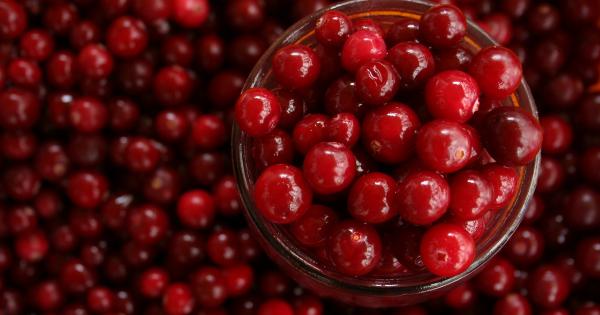Eating a nutritious and balanced diet is crucial for maintaining good health and well-being.
While many people think that making significant changes to their diet is necessary to see improvements in their health, even minor tweaks can have a significant impact. In this article, we will explore some simple yet effective diet tweaks that you can make to upgrade your health.
1. Increase your water intake
Water is essential for the proper functioning of our bodies. It helps with digestion, nutrient absorption, and the elimination of waste products. By increasing your water intake, you can improve your overall health.
Aim to drink at least eight glasses of water per day, and more if you are physically active or live in a hot climate.
2. Incorporate more fruits and vegetables
Fruits and vegetables are packed with vitamins, minerals, and antioxidants that are beneficial for your health. Try to include a variety of colorful fruits and vegetables in your daily diet.
They provide essential nutrients, improve digestion, and help prevent chronic diseases.
3. Choose whole grains over refined grains
Refined grains, such as white bread and white rice, have had their bran and germ removed, stripping them of valuable nutrients.
On the other hand, whole grains, like brown rice and whole wheat bread, contain the entire grain, providing fiber, vitamins, and minerals. Opt for whole grains to improve digestion and increase nutrient intake.
4. Reduce added sugar consumption
Excessive sugar consumption is linked to various health problems, including obesity, type 2 diabetes, and heart disease. Cut back on sugary beverages, processed snacks, and desserts.
Instead, satisfy your sweet tooth with naturally sweet foods like fruits or opt for healthier alternatives like stevia or honey in moderation.
5. Increase your protein intake
Protein is essential for building and repairing tissues, producing enzymes, and supporting healthy immune function. Include sources of lean protein, such as chicken, fish, tofu, and legumes, in your meals.
Protein-rich foods also help you feel fuller for longer, reducing the likelihood of overeating.
6. Replace unhealthy fats with healthy fats
Not all fats are created equal.
While unhealthy fats found in processed foods can increase the risk of heart disease and other health issues, healthy fats like those found in avocados, nuts, and olive oil can improve heart health and support brain function. Swap out saturated and trans fats for healthier options to upgrade your diet.
7. Limit processed and fast foods
Processed and fast foods are often high in unhealthy fats, added sugars, salt, and artificial additives. These foods provide little nutritional value and can contribute to weight gain and chronic health conditions.
Cook meals at home using fresh ingredients as much as possible to control the quality and nutritional value of your meals.
8. Practice mindful eating
Mindful eating involves paying attention to the taste, texture, and smell of your food and listening to your body’s hunger and fullness cues. Avoid distractions like screens while eating and take your time to savor each bite.
This practice can help you develop a healthier relationship with food and prevent overeating.
9. Keep healthy snacks on hand
Having nutritious snacks readily available can prevent you from making unhealthy food choices when hunger strikes. Keep a stash of nuts, seeds, fresh fruits, or cut-up veggies in your pantry or bag.
These snacks are rich in vitamins, minerals, and fiber, helping you stay energized and satisfied between meals.
10. Practice portion control
Being mindful of portion sizes can prevent overeating and help you maintain a healthy weight. Use smaller plates and bowls to trick your brain into thinking you have eaten a full meal.
Additionally, listen to your body’s signals of fullness and stop eating when you feel satisfied, rather than stuffed.
Conclusion
Improving your health doesn’t always require drastic changes to your diet.
By making these minor tweaks, such as increasing water intake, incorporating more fruits and vegetables, choosing whole grains, reducing added sugars, increasing protein intake, choosing healthier fats, and practicing mindful eating, you can upgrade your health and well-being. Remember, small changes can lead to significant improvements over time, so start making these tweaks today!.































